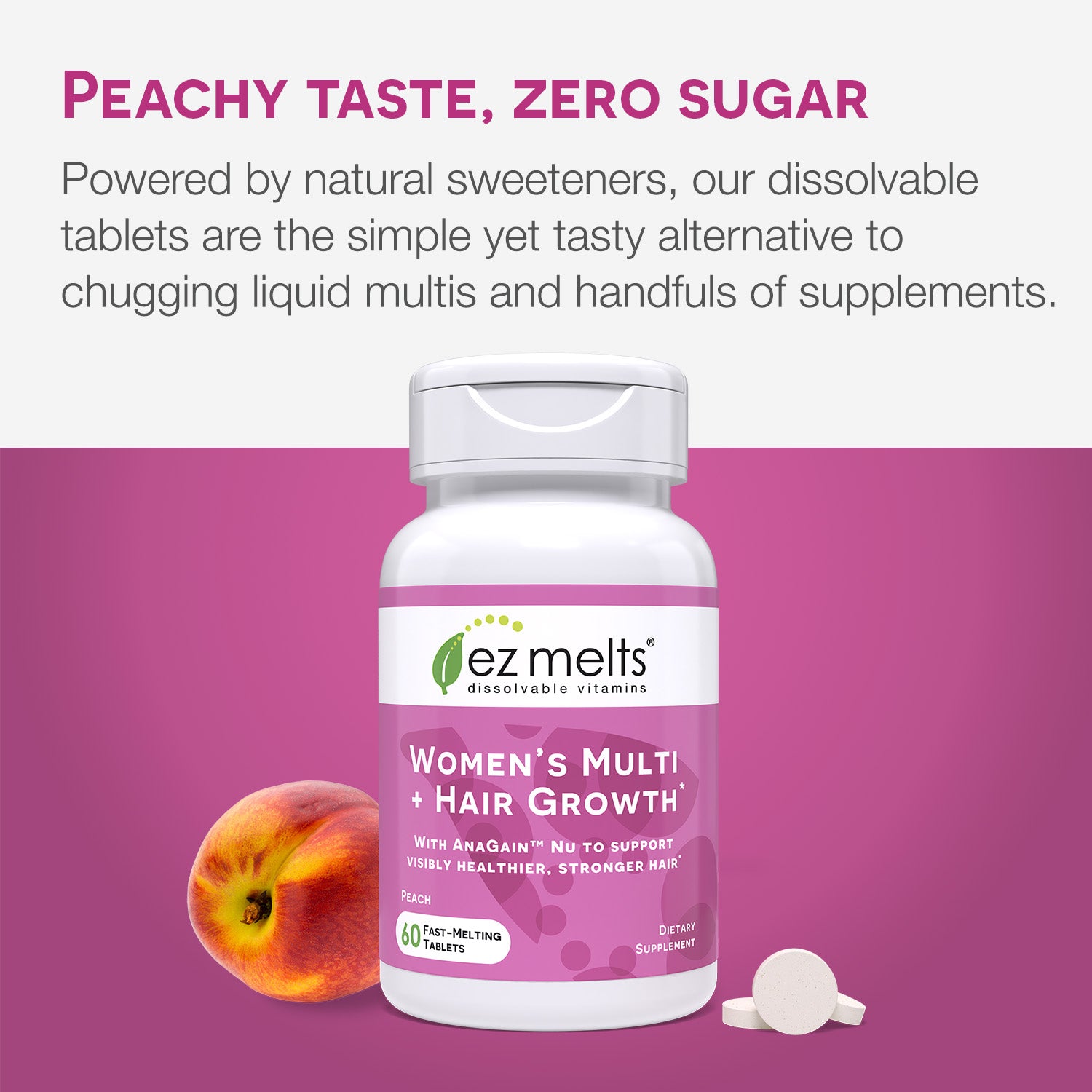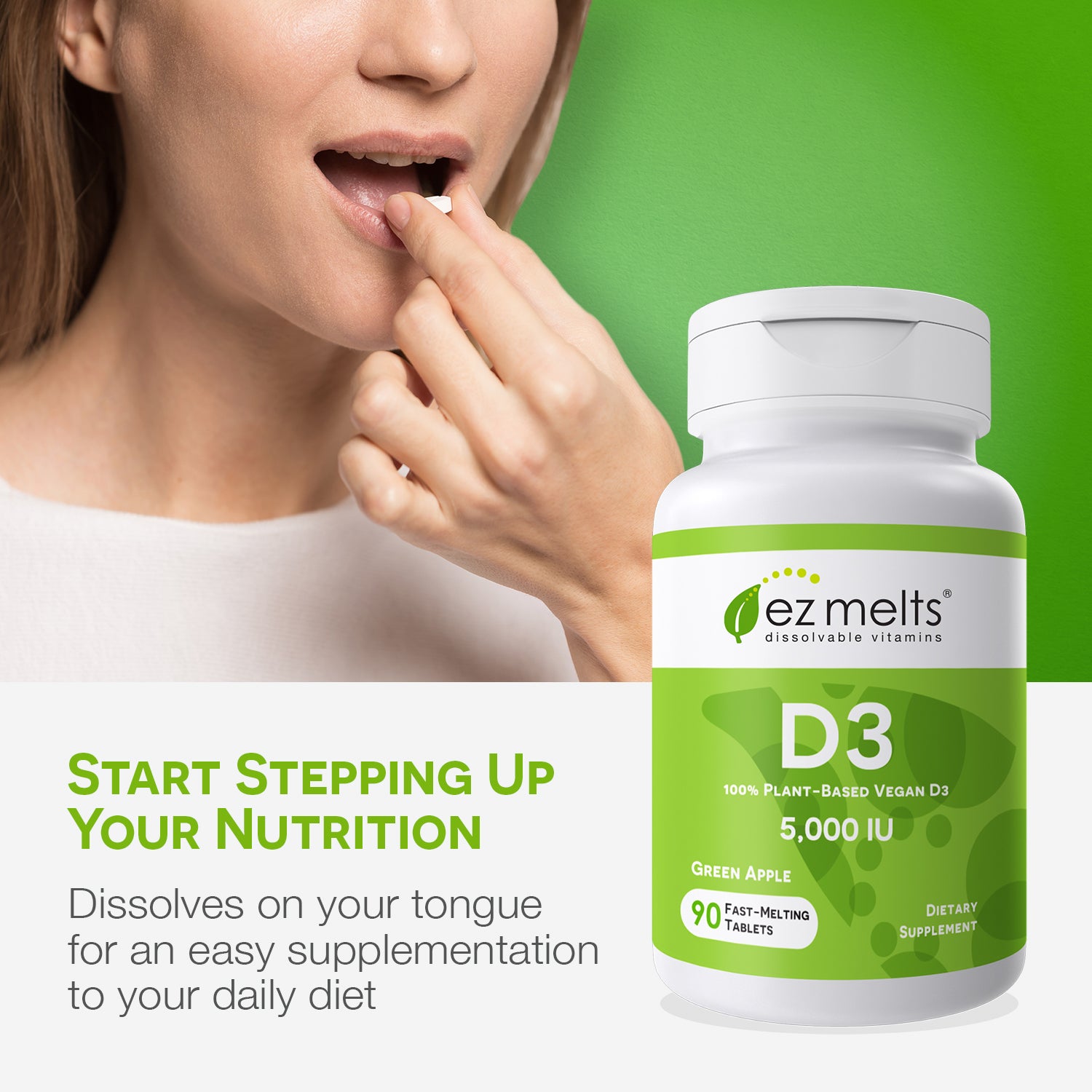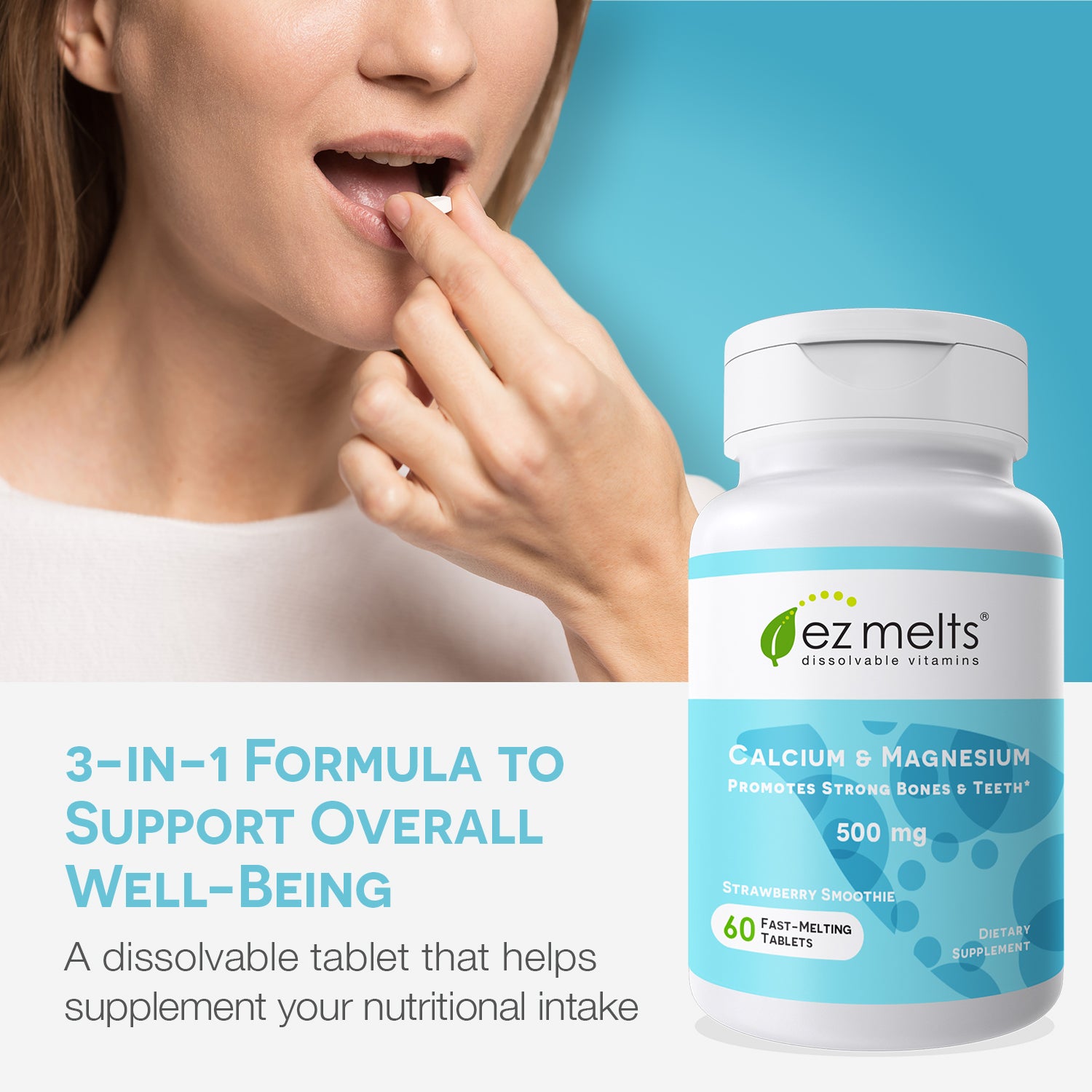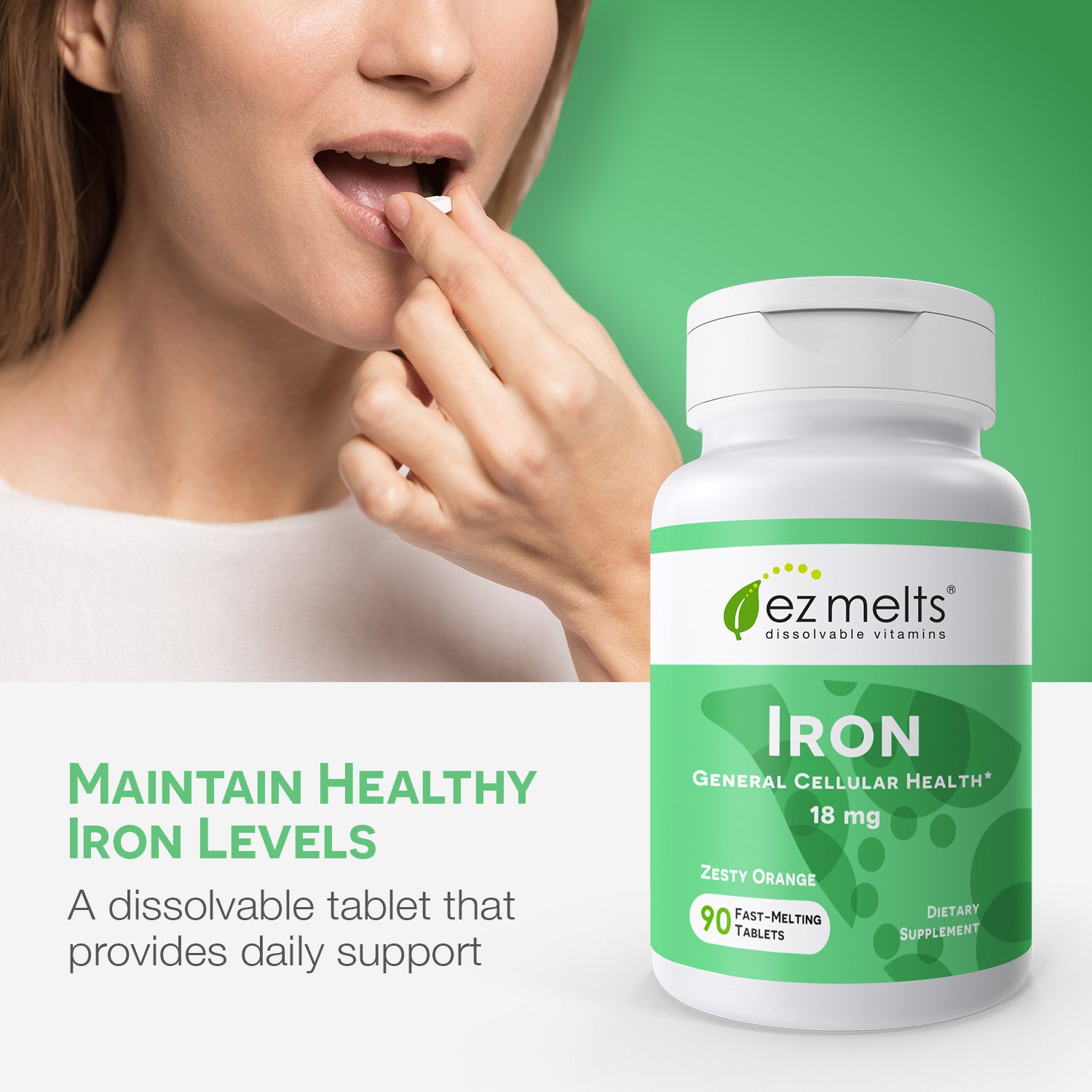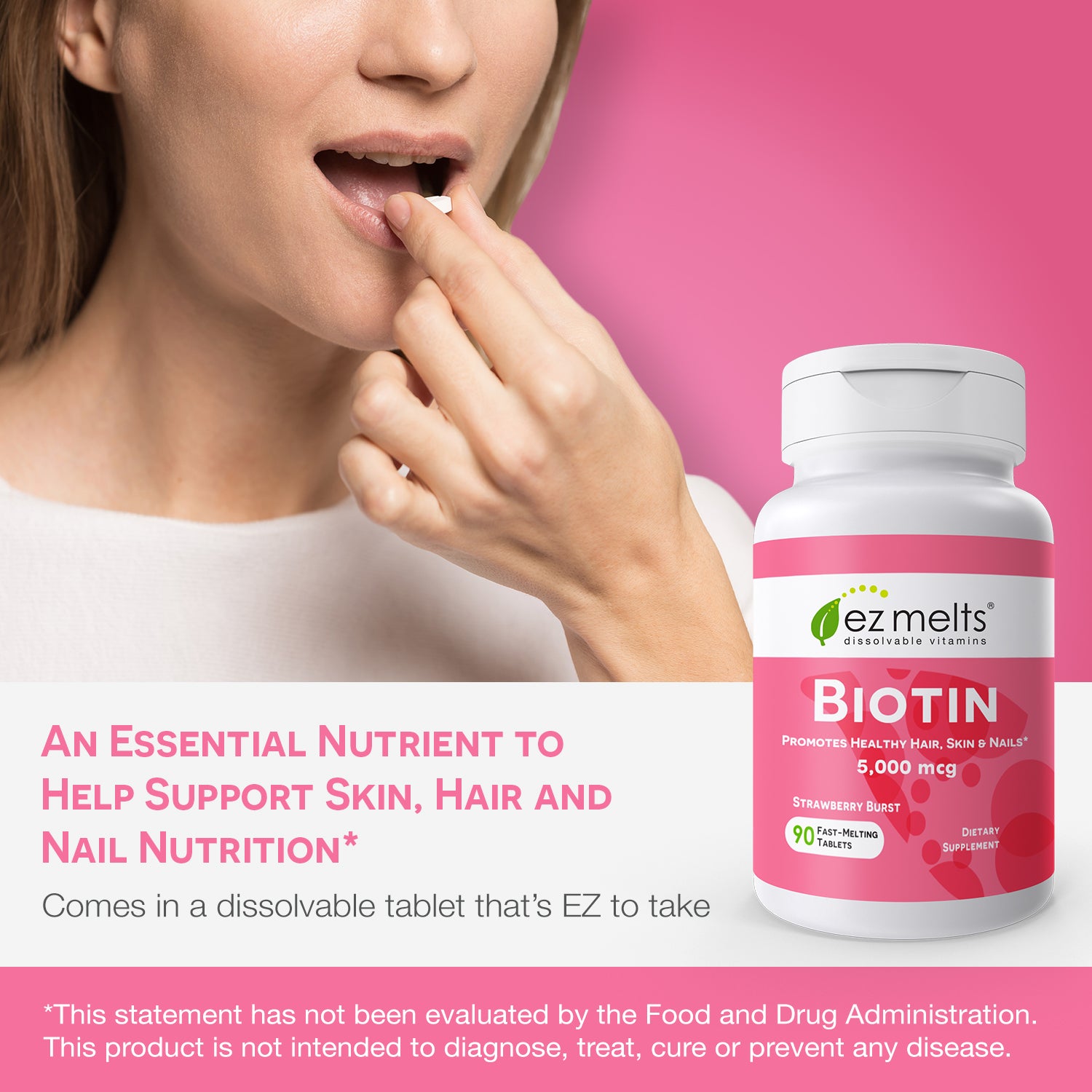Vitamins for Women
Sort by:
10 products
10 products
- Fast Dissolving 100% Vegan Multivitamin with Iron!
- Daily, advanced nutritional support multivitamin for men and women
- Supports increased energy and antioxidant protection
- Provides the essential vitamins, minerals and nutrients necessary for a balanced diet
- 60 fast melting tablets with "Tropical Cherry" flavor
- MADE IN THE USA: Zero Sugar, Vegan, Gluten-Free, Non-GMO, Natural Flavors, Natural Sweeteners, Natural Colors
- Vitamin D3 increases calcium absorption for strong bones and teeth
- Promotes healthy cell growth and proper immune function
- Helps improve bone health and the musculoskeletal system
- 90 fast melting tablets with "Green Apple" flavor
- MADE IN THE USA: Zero Sugar, Vegan, Gluten-Free, Non-GMO, Natural Flavors, Natural Sweeteners, Natural Colors
- Our Calcium and magnesium supplement support healthy bones and teeth
- Promotes normal heart rhythm and cardiovascular health
- Vegan Vitamin D3 enhances calcium absorption
- 60 fast melting tablets with "Strawberry Smoothie" flavor
- MADE IN THE USA: Zero Sugar, Vegan, Gluten-Free, Non-GMO, Natural Flavors, Natural Sweeteners, Natural Colors
- The only fast melting Iron supplement on the market that tastes amazing
- Aids body in fighting off fatigue, Iron supplementation important for individuals dealing with anemia
- Formulated with carbonyl iron for optimum safety and effect, Vitamin C helps body absorb Iron more effectively
- 90 fast melting tablets with "Zesty Orange" flavor
- MADE IN THE USA: Zero Sugar, Vegan, Gluten-Free, Non-GMO, Natural Flavors, Natural Sweeteners, Natural Colors
- Vitamin D3 increases calcium absorption for strong bones and teeth
- Vitamin K2 as MK-7 promotes arterial and skeletal system health
- Promotes healthy cell growth and proper immune function
- Helps optimum transfer of calcium from the arteries into the bones
- Helps improve bone health and the musculoskeletal system
- Supports overall cardiovascular system health
- 90 fast melting tablets with "Green Apple" flavor
- MADE IN THE USA: Zero Sugar, Vegan, Gluten-Free, Non-GMO, Natural Flavors, Natural Sweeteners, Natural Colors
- Our Biotin supplement supports skin health and normal cell growth
- Promotes strong nails and healthy, smooth hair
- Supports blood sugar levels and protein metabolism
- 90 fast melting tablets with "Strawberry Burst" flavor
- MADE IN THE USA: Zero Sugar, Vegan, Gluten-Free, Non-GMO, Natural Flavors, Natural Sweeteners, Natural Colors
Showing 8/10
Vitamins for Women: Supporting Daily Health and Wellness
Women’s health is multifaceted, shaped by biological needs, lifestyle demands, and the natural transitions that occur across life stages. From adolescence to adulthood and through midlife and beyond, the body requires a wide range of vitamins and minerals to function at its best.
Nutrition plays an important role in supporting these needs. While a balanced diet should always be the foundation, vitamins for women may help fill nutritional gaps that arise from busy schedules, dietary restrictions, or increased demands during certain phases of life.
This article explores the most important vitamins for women, how they contribute to everyday health, and lifestyle habits that complement good nutrition.
Why Women Have Unique Nutritional Needs
While men and women share many dietary requirements, certain differences stand out. For example:
- Iron needs are typically higher for women of childbearing age due to menstrual cycles.
- Calcium and vitamin D are important for women as they age to support bone strength.
- Folate is especially emphasized for women of childbearing age because of its role in DNA synthesis and cell development.
- B vitamins support energy metabolism, which is often a priority for women balancing multiple responsibilities.
These unique needs highlight the importance of paying attention to micronutrient intake at every stage of life.
Key Vitamins and Nutrients for Women’s Health
1. Iron
Iron supports the production of hemoglobin, which carries oxygen in the blood. Adequate iron levels are especially important for women of reproductive age, as iron is lost during menstruation.
Natural sources: Lean meats, beans, lentils, spinach, and fortified cereals.
2. Folate (Vitamin B9)
Folate plays a key role in DNA synthesis and red blood cell formation. It is particularly emphasized for women of childbearing age, as it supports cell growth and development.
Natural sources: Leafy greens, legumes, asparagus, and citrus fruits.
3. Calcium
Calcium is well known for its role in bone health, but it also supports muscle function and nerve signaling. Women, especially as they age, are encouraged to prioritize calcium intake to maintain strong bones.
Natural sources: Dairy products, fortified plant milks, leafy greens, and almonds.
4. Vitamin D
Vitamin D works hand in hand with calcium by aiding absorption and supporting bone integrity. It also contributes to immune function and overall vitality. Many women may not get enough vitamin D from sunlight or diet alone, making awareness of intake important.
Natural sources: Fatty fish, fortified dairy or plant milks, egg yolks, and sunlight exposure.
5. Vitamin B12
Vitamin B12 supports red blood cell formation and nervous system health. Since it is primarily found in animal products, women following plant-based diets should be mindful of intake.
Natural sources: Fish, poultry, eggs, dairy, and fortified plant-based foods.
6. Vitamin B6
Vitamin B6 contributes to protein metabolism and neurotransmitter function. It helps the body convert food into usable energy and supports overall metabolic health.
Natural sources: Poultry, bananas, chickpeas, and fortified cereals.
7. Vitamin C
Vitamin C supports collagen production, which is essential for skin, gums, and connective tissue. It also enhances iron absorption and provides antioxidant protection.
Natural sources: Oranges, kiwi, bell peppers, strawberries, and broccoli.
8. Vitamin E
Vitamin E is a fat-soluble antioxidant that helps protect cells from oxidative stress. It supports skin and immune health as part of a balanced diet.
Natural sources: Sunflower seeds, almonds, spinach, and avocados.
9. Magnesium
Magnesium supports muscle function, nerve signaling, and over 300 biochemical reactions in the body. It also contributes to normal energy production and helps maintain balance during busy or stressful periods.
Natural sources: Nuts, seeds, legumes, whole grains, and leafy greens.
10. Omega-3 Fatty Acids (Bonus Nutrient)
Though not a vitamin, omega-3 fatty acids are often highlighted for women due to their role in supporting heart health and brain function.
Natural sources: Fatty fish, flaxseeds, chia seeds, and walnuts.
Women’s Nutritional Needs Across Life Stages
Adolescence
During teenage years, women need adequate calcium, vitamin D, and iron to support growth, bone development, and overall wellness. Habits formed in this stage can set the tone for long-term health.
Childbearing Years
Folate, iron, and vitamin B12 are particularly important during this stage. Folate supports healthy cell development, while iron and B12 aid in maintaining normal energy and blood health.
Midlife
As metabolism naturally changes, B vitamins, calcium, vitamin D, and magnesium become increasingly important. These nutrients support energy balance and bone health.
Later Years
Bone health and cognitive wellness become priorities. Calcium, vitamin D, B vitamins, and omega-3 fatty acids are often emphasized.
Lifestyle Habits That Complement Vitamin Intake
While vitamins support health, lifestyle choices make a big difference in how women feel day to day. Some key habits include:
- Balanced nutrition – Prioritize whole foods, fruits, vegetables, lean proteins, and healthy fats.
- Physical activity – Weight-bearing exercise supports bone health, while cardio helps circulation.
- Adequate sleep – Rest is essential for hormonal balance and recovery.
- Stress management – Chronic stress can deplete certain nutrients more quickly.
- Hydration – Water plays a key role in metabolism and skin health.
Supplements and Daily Gaps
Even with the best intentions, not everyone consistently meets their nutritional needs through food alone. Busy lifestyles, dietary restrictions, and natural changes over time can lead to gaps. Vitamins for women can help bridge those gaps by providing essential vitamins in a convenient way.
However, it’s important to remember that supplements are meant to complement, not replace, a healthy diet. A healthcare provider can help determine which nutrients may be most beneficial for an individual’s needs.
Safety Considerations
While vitamins are vital, more is not always better. Excessive intake of certain nutrients — such as iron or vitamin A — can cause side effects if taken beyond recommended amounts. Always check labels, follow serving guidelines, and consult a healthcare provider before beginning new supplements.
Final Thoughts
Women’s health is a lifelong journey that benefits from mindful nutrition. From bone strength and energy metabolism to skin and immune wellness, vitamins and minerals provide foundational support for daily life.
Whether through a balanced diet or the careful use of vitamins for women, ensuring adequate intake of key nutrients can help women feel strong, energized, and resilient at every stage.
FAQs About:
Vitamins for Women
Key nutrients often emphasized for women include iron, folate, vitamin D, calcium, vitamin B12, and biotin. These support functions like red blood cell formation, bone strength, and energy metabolism.
Yes, women of childbearing age typically have higher iron needs due to menstrual blood loss. Adequate iron supports oxygen transport and overall vitality. After menopause, iron needs often decrease.
Vitamin D helps the body absorb calcium, making both important for maintaining bone health. Many women choose to take them together as part of a balanced routine.
A multivitamin can help fill daily nutritional gaps for women with busy lifestyles, dietary restrictions, or increased nutrient demands. It should complement — not replace — a balanced diet.
Multivitamins with iron are often recommended for women of reproductive age, while those without iron may be better suited for women who no longer have high iron needs (such as after menopause). Choosing the right one depends on age, diet, and individual health factors.




















